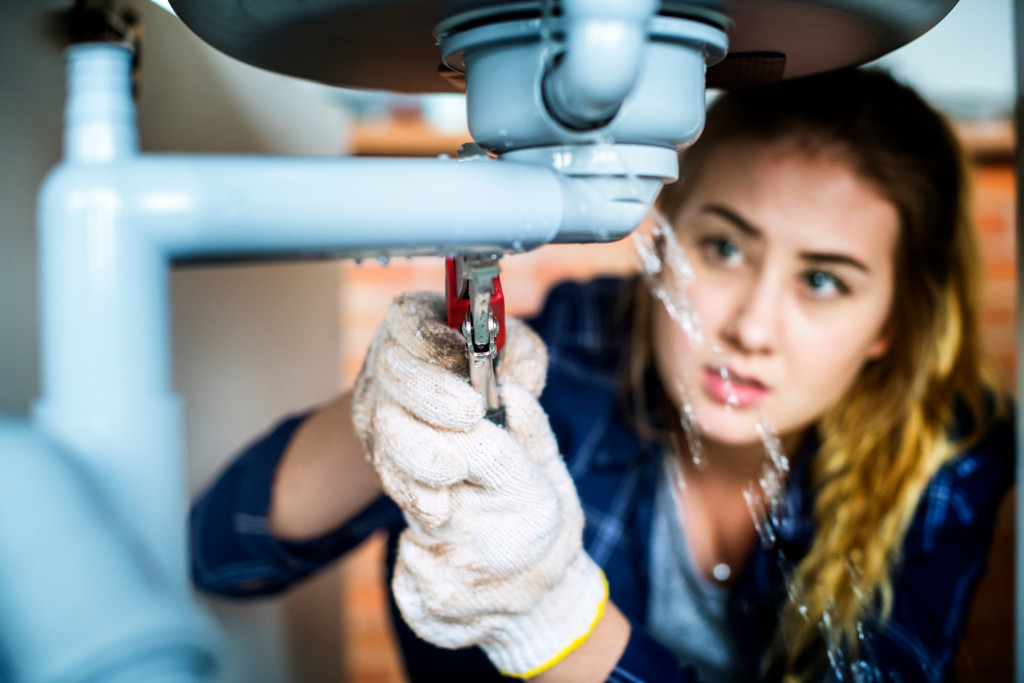Living alone has its challenges, and one of these is maintaining a home on your own. Aside from the repair and upkeep, you need to prepare for the ravages of the weather and time. And one of these is water damage. Water damage is one of the problems that many property owners want to avoid. This causes long-term effects that are costly and difficult to repair. It also destroys the beauty of any space because of warped walls, leaks and others.
The Damaging Effects of Water Damage
Many experienced plumbers cite that natural disasters such as flooding and hurricanes are not the only causes of water damage. Some of the small things that result in the latter include:
- Blocked gutters
- A sump pump that fails to turn on
- Small holes in pipes
- Poorly graded soil
A small and slow leak may cause the rotting of walls, drywall and studs. These may also lead to the growth of black mold. A combination of these problems may weaken foundational structures of a home such as the beams and joists. All these add up to high repair expenses. You may need a contractor and carpenters to do extra work because of the damage.
Experts agree on the following ways to prevent water damage.
Regular Check-ups and Maintenance
If you lack plumbing experience, it is better to consult an experienced plumber to do regular check-ups and maintenance. They can detect current and even potential problems when they inspect your pipes and other possible causes of water damage. They can provide you with long-term solutions and address a problem quickly. Regular maintenance is less costly than major repairs and overhauls.
Proper Drainage
Poor drainage damages the foundation of your home and may cause uneven settling and cracks. The water and debris accumulation cause clogs and may result in leaks or holes. The water then seeps into the wood that may eventually rot. These slow but long-term effects may have been prevented with proper drainage. Other than internal plumbing, you also have to worry about the gutters. Clogged gutters direct water to the side, which may damage the siding. Consult a plumber to check pipes and other parts of your system for poor drainage.
Test the Sump Pump
A sump pump’s use manifests when the hurricanes and rains arrive. It keeps a house dry and prevents it from flooding. It directs water away from a house and leads it to a place where it won’t cause problems. If it doesn’t do its job, a homeowner will experience flooding and water accumulation. These may lead to possible long-term water damage. Inspect your sump pump regularly to identify any damage or problem it may have and test them to determine if it is still working properly. It helps to have an expert check it so that you won’t miss any minor damage to it.
Identify Leaks and Have them Fixed

Even the smallest leaks may cause big, long-term problems. Small but persistent leaking may cause the growth of mildew and mold. Water accumulation between walls and sidings may result in rot. These problems will then attract termites and carpenter ants which cause further damage to wood and parts of a house. You can prevent these by identifying the source of the leaks and then have them fixed with the help of a plumber.
These are some of the ways to prevent water damage. A plumber makes things easier and more convenient because they can identify the main sources of the problems and provide you with immediate and long-term solutions.

